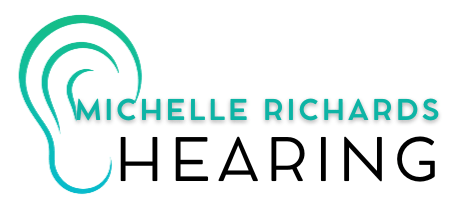Tinnitus
At Michelle Richards Hearing we understand that dealing with tinnitus can be a challenging and distressing experience. Tinnitus is a condition characterized by the perception of noise or ringing in the ears when no external sound is present. This persistent ringing, buzzing, or humming can significantly impact your quality of life, making it essential to seek proper guidance and support.
What is Tinnitus?:
Tinnitus is the perception of sound where there is no identifiable sound source. Tinnitus can be perceived as a ringing, buzzing, hissing, chiming, whistling or other unpleasant sound.
Causes of Tinnitus:
Tinnitus can be caused by various factors, including exposure to loud noises, age-related hearing loss, earwax blockages, certain medications, underlying health conditions, and even stress. Identifying the underlying cause of your tinnitus is crucial in determining the most effective management strategies.
Studies have shown that exposure to loud music, including through personal listening devices such as headphones, can cause auditory system damage that may lead to tinnitus.
Risk Factors:
Hearing loss is a well-established risk factor for tinnitus, affecting approximately 70% of people living with tinnitus.
It is estimated that as many as 30% of adults have tinnitus, and the prevalence increases with age.
Tinnitus may contribute to disturbed sleep patterns, as well as cognitive and emotional problems.
Management and Treatment Options:
While there is currently no cure for tinnitus, there are several management and treatment options available to help alleviate symptoms and improve your quality of life. These may include:
- Sound Therapy: Using white noise machines, hearing aids, or sound masking devices can help distract you from the ringing sensation.
- Counseling: Seeking support from a counselor or therapist experienced in tinnitus management can assist you in coping with the emotional impact of tinnitus.
- Lifestyle Changes: Adopting healthy lifestyle habits such as regular exercise, stress management techniques, adequate sleep, and avoiding triggers like loud noises can contribute to reducing tinnitus symptoms.
- Medical Interventions: In some cases, medical interventions such as medication for underlying conditions, cognitive behavioral therapy (CBT), or even experimental treatments may be recommended by healthcare professionals.
Seeking Professional Help:
It is crucial to consult with a qualified Audiometrist, Audiologist or an ear, nose, and throat (ENT) specialist for a comprehensive evaluation if you are experiencing tinnitus. They can help determine the cause of your tinnitus and tailor a treatment plan that suits your individual needs.
Remember that you are not alone in this journey, and there are resources and support available to help you manage tinnitus effectively. Do not hesitate to reach out for assistance and take proactive steps towards improving your well-being.
